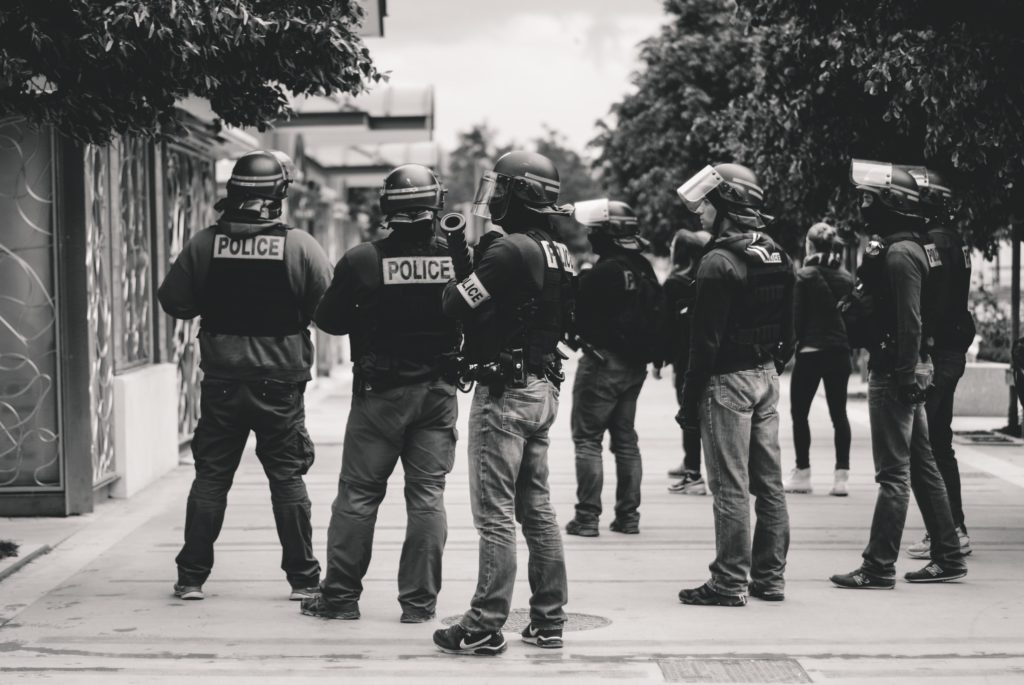Original article (in Slovenian) was published on 07/03/2023
The reasons why Slovenia slipped in the peace index last year include a higher homicide rate, number of security guards, police officers and prisoners, and worse political instability, the Institute for Economics & Peace explained.
The Nova24tv.si portal reported on 14 February about a tweet by Anton Olaj, the police commissioner under the Janez Jansa government. Earlier that day, Olaj tweeted that Slovenia had slipped from fifth to seventh place on the Global Peace Index, as measured by the Australian outfit. “It seems that not enough has been done in the security sphere in Slovenia.”
Nova24tv.si reported that along with Denmark, Slovenia is the only country among the top ten most peaceful countries in the world to have slipped in the Global Peace Index, which has been compiled since 2008 by the Australian non-profit and independent Institute for Economics & Peace (IEP). They also wrote that Slovenia’s drop in the ranking was due, among other things, to aggressive protesters.
The author of the article based his conclusion on the Global Peace Index for last year. The report, which covers 163 countries and territories, shows that among the ten most peaceful countries in the world, Slovenia, Denmark and Portugal fell in the ranking. Slovenia went from fourth to seventh place, Denmark from third to fourth, and Portugal from fifth to sixth.
The Australian organisation calculates the index based on 23 indicators. Each country receives a score from 1 to 5 for each indicator based on data provided to the Institute by various organisations, such as the International Institute for Strategic Studies in London. The lower the score, the more peaceful the country.
According to the IEP report, Slovenia and Denmark are the only countries in the top 10 most peaceful countries in the world to fall in the rankings due to a deterioration in violent demonstrations and other indicators. The report does not specify why Portugal slipped, but Razkrinkavanje.si was told that the reasons were higher homicide rates, perception of criminality in society, prison population, and political instability.
However, according to the IEP, Slovenia scored 1.5 on the violent demonstrations indicator for the period between March 2021 and March 2022, the same as in the previous period. Asked why the report attributed Slovenia’s slide to violent demonstrations, the IEP explained that in compiling the report, they look at trends spanning several years. From 2008 to 2020, Slovenia had a score of 1 on the violent demonstrations indicator.
The violent demonstrations indicator reflects the frequency and severity of violence during demonstrations, whether initiated by protesters or security forces. It includes data on the number of protests in which security forces intervened, demonstrations with excessive use of force against protesters, violent demonstrations, and mob violence.
The Institute for Economics & Peace explained to Razkrinkavanje.si that Slovenia’s decline last year compared to 2021 was also due to a higher homicide rate, the number of security guards, police officers and prisoners, and increased political instability. “It is worth noting that the score for Slovenia is still very low,” they added.
Anton Olaj told Razkrinkavanje.si that his tweet was referring to several indicators measuring the level of security and safety in society. He said it was difficult to dispute the portal’s claim that aggressive protesters are partially to blame for Slovenia’s decline in the rankings, as he understands that to be their assessment and understanding of the indicator of the likelihood of violent demonstrations. “Given the lower score of the index for 2022, one may question whether the police did enough last year in providing security.”
The indicator covers data from March 2021 to March 2022 and the report was published last June. Olaj was the police commissioner from 28 January 2021 to 1 June 2022. When we brought this to his attention, he wrote that the title of the publication misleads the readers into thinking that the index refers to 2022.
The claim that Slovenia and Denmark are the only two countries among the ten most peaceful countries to have slipped in the Global Peace Index last year is manipulative.

